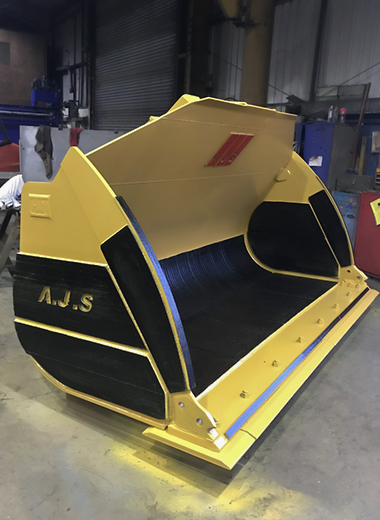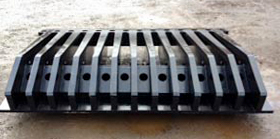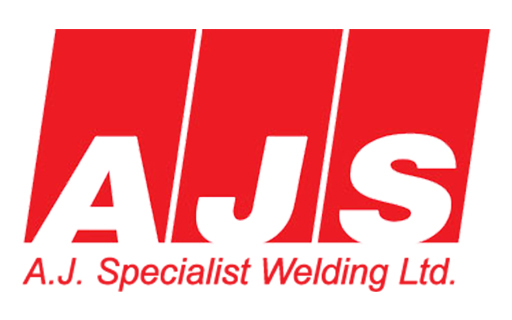sales@ajsw.co.uk | +44 1530 831191
Abrasion Plate Fabrication
Abrasion Wear Plates Manufacturing and Welding
Wear resistance is defined by hardness. Our abrasion plate is quenched and tempered to a high degree of hardness thus in a great number of constructions its use will lead to a substantial increase in service life. Depending on the type of wear, parameters such as chemical composition and microstructure take effect. A characteristic of our wear plates is the addition of chromium which has produced the best results. The chemical composition is designed to provide thorough hardening of the thickness involved.

Thermal Cutting
Our abrasion plate can be flame cut without problems. Plasma and laser cutting produce particularly good results.
Due to the high temperatures and rapid cooling involved the cut edge will be as hard or harder than the original material. For thicknesses, up to 30 mm preheat is not normally necessary, however, if the ambient temperature is below +5°C or the cut edge is to be cold-formed, preheating to 120 – 150°C should be considered. (For preheat temperatures see welding recommendations).
Typical Applications
Fabrication Details
Our abrasion wear plates are designed to have excellent working characteristics both under workshop conditions and on-site.

Abrasion Plate Welding
Our abrasion plate can be perfectly welded along the lines of any proven process. The requirements listed below should be met to obtain welds with no cracks and full bearing strength:
- Use of suitable alloyed filler metals to obtain such mechanical properties in the welded material as will meet the requirements.
- Humidity should be excluded during welding to ensure low hydrogen contents in the weld metal to prevent cold cracking. Therefore, filler metals and zones to be welded should be thoroughly dried.
- Choice of adequate thermal cycles during welding to obtain controlled cooling rates in the weld metal and the heat-affected zone to reach the required mechanical properties. Controlled cooling rates are feasible through limited heat input.
